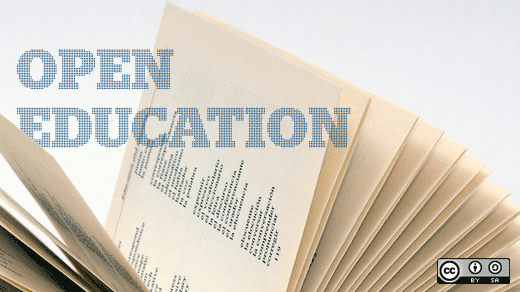“Open Education” by opensource.com is licensed under CC BY-SA 2.0.
This week we’re celebrating Open Education Week at Temple University Libraries. The purpose of Open Education Week is to raise awareness about resources, tools, and practices that help increase access to education.
One way faculty can help make education more accessible is by using open educational resources (OER). What are OER? According to UNESCO, OER are “are any type of educational materials that are in the public domain or introduced with an open license. The nature of these open materials means that anyone can legally and freely copy, use, adapt and re-share them.” In a recent study, only 15 percent of faculty respondents said they had used OER in their classes. 39 percent of respondents said that they had never even heard of OER!
This lack of faculty awareness is a real problem, because as students know all too well, class materials such as print textbooks can be very expensive. Some students might go further into debt to buy their textbooks, while others just won’t buy them at all. But it doesn’t have to be this way. There are a growing number of high-quality open textbooks available in many different disciplines. One example is the American Yawp, a collaboratively-edited American history textbook created by leading academics from around the United States. You can find more open textbooks by searching the Open Textbook Library, OpenStax, and Open SUNY Textbooks.
If you can’t find the right open textbook for your class, consider creating an alternative textbook instead. Alternative textbooks are “textbooks” assembled from both library and open access resources. Unlike traditional textbooks, however, they are completely free for students. In 2011, Temple University Libraries started its Alternate Textbook Project. Each year, faculty can submit proposals for an alternative textbook. Faculty whose proposals are accepted will receive support from the Libraries and an award of $1,000. So far, 46 faculty members from across the University have participated in the project, saving Temple students over $300,000.
Interested in learning more about open and alternative textbooks? Come to our event, “Ditch the Textbook: Exploring Options for Textbook Affordability,” on Wednesday, March 9th @ 12:00 pm in the Paley Library Lecture Hall. Panelists include Temple University student Eitan Laurence, Associate Professor of Art Gerard Brown, Professor of Tourism and Hospitality Management Wesley Roehl, and Assistant Professor of Media Studies and Production Kristine Weatherston. The panel will be moderated by Annie Johnson, Library Publishing and Scholarly Communications Specialist.
Can’t make it to the event? Follow the conversation on Twitter: #openeducationwk.

